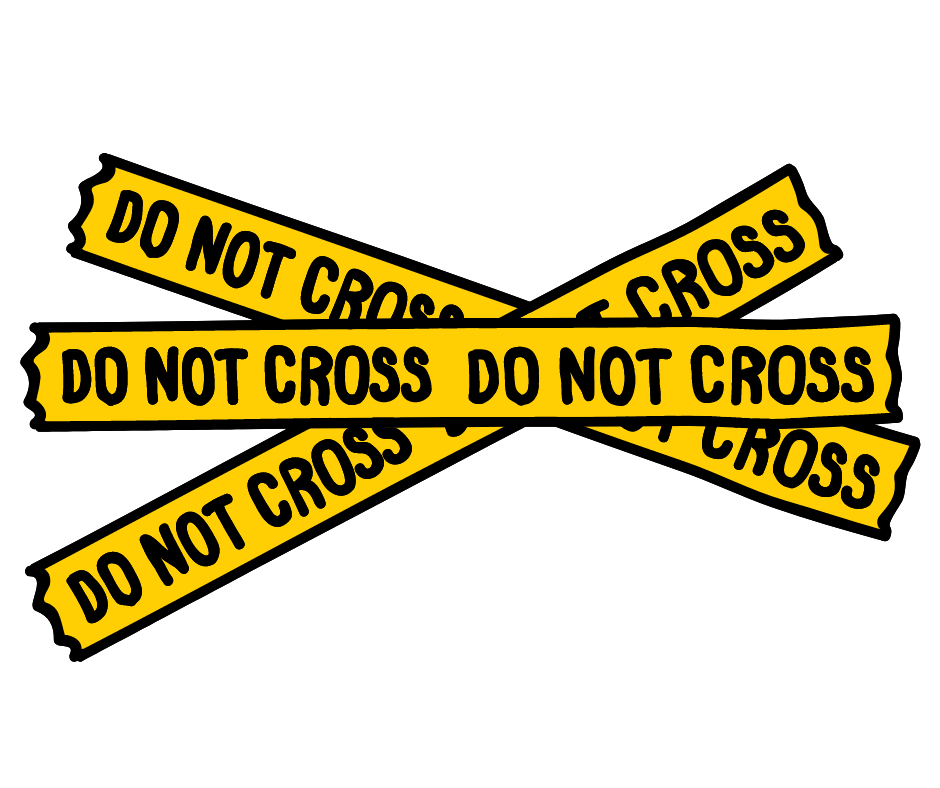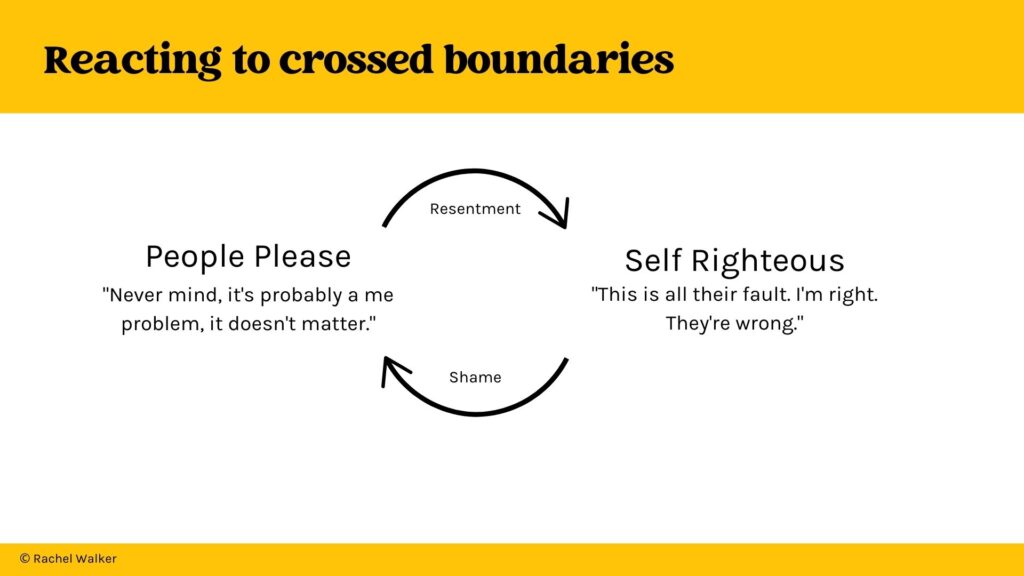In this section I’m going to talk you through an example where my boundaries were crossed (before I was even aware these were boundaries that were important to me). The purpose of this story is:
- To show how experiencing our boundaries being crossed can help us learn what our limits are and what boundaries we want to communicate or uphold in future
- To illustrate the two main reactions people have to crossed boundaries which are ineffective
When Boundaries Are Crossed
Last year I decided to try kickboxing classes at my local gym. I agreed to pay on a monthly rolling contract (rather than pay as you go) with the expectation there would be one 1 hour class per week (I knew I couldn’t go every week but 3 out of 4 was fine with me).
After a month, the new timetable was released and due to room availability and school holidays, the classes were scheduled instead to fortnightly, for 2 hours. I was frustrated because if I’d have known that was the case, I wouldn’t have signed up for monthly rolling membership.

Understanding where that frustration came from I realised this was crossing 3 of my boundaries:
- Time – I wanted the cadence of weekly and I couldn’t commit to 2 hours at a time
- Money – It was no longer financially beneficial to be paying on a monthly contract because I wouldn’t be going enough
- Emotional/ Physical – I don’t have the attentional capacity to follow instructions for that type of activity for 2 hours
When we find that our boundaries have been crossed, like in the example above, there are two common reactions: people pleasing and self righteousness.
People Pleasing & Self Righteousness
People pleasing is over empathising with the other person and not honouring what’s important to ourselves. It’s things like:
- “Never mind, it’s probably a me problem, it doesn’t matter.”
- “She is trying her best with the limitations she has so I shouldn’t cause a fuss.”
- “I’ve already said I’ll pay so I’ll just stick with the commitment.”
Self righteousness is not empathising with the other person and instead placing blame:
- “This is all their fault. I’m right. They’re wrong.”
- “Why can’t she just figure out the timetable and make it weekly. It’s not hard!”
- “Why didn’t she think about this? How short sighted. I refuse to continue paying. ”
These 2 reactions can then feed off each other in a loop. We people please because we don’t feel comfortable expressing our needs, then grow resentful because we’ve compromised on our boundaries. This resentment leads us to act from a place of self righteousness and then we feel shame for our reaction so we people please.

Empathy is what helps us cut through both of these reactions so we can respectfully communicate our boundaries (more on this later!)

Stop and Reflect:
What came up for you when you listened to my story?
Take note of your reflections. Do you notice when your boundaries are being crossed and what your reaction is? Do you lean more towards people pleasing or self righteousness?

Note:
TOP TIP: It can be uncomfortable to notice and reflect on these aspects of ourselves, and that’s okay! The discomfort is part of growth.

Read: 7 Signs Someone Doesn’t Respect Your Boundaries and What to Do (10 mins)
Read this article to help you identify when your boundaries are being violated and how to deal with it.

Read: 7 Ways You May Not Realise Your Boundaries are Being Crossed (7 mins)
Read this article to learn more about ways your boundaries can be crossed without you realising.






